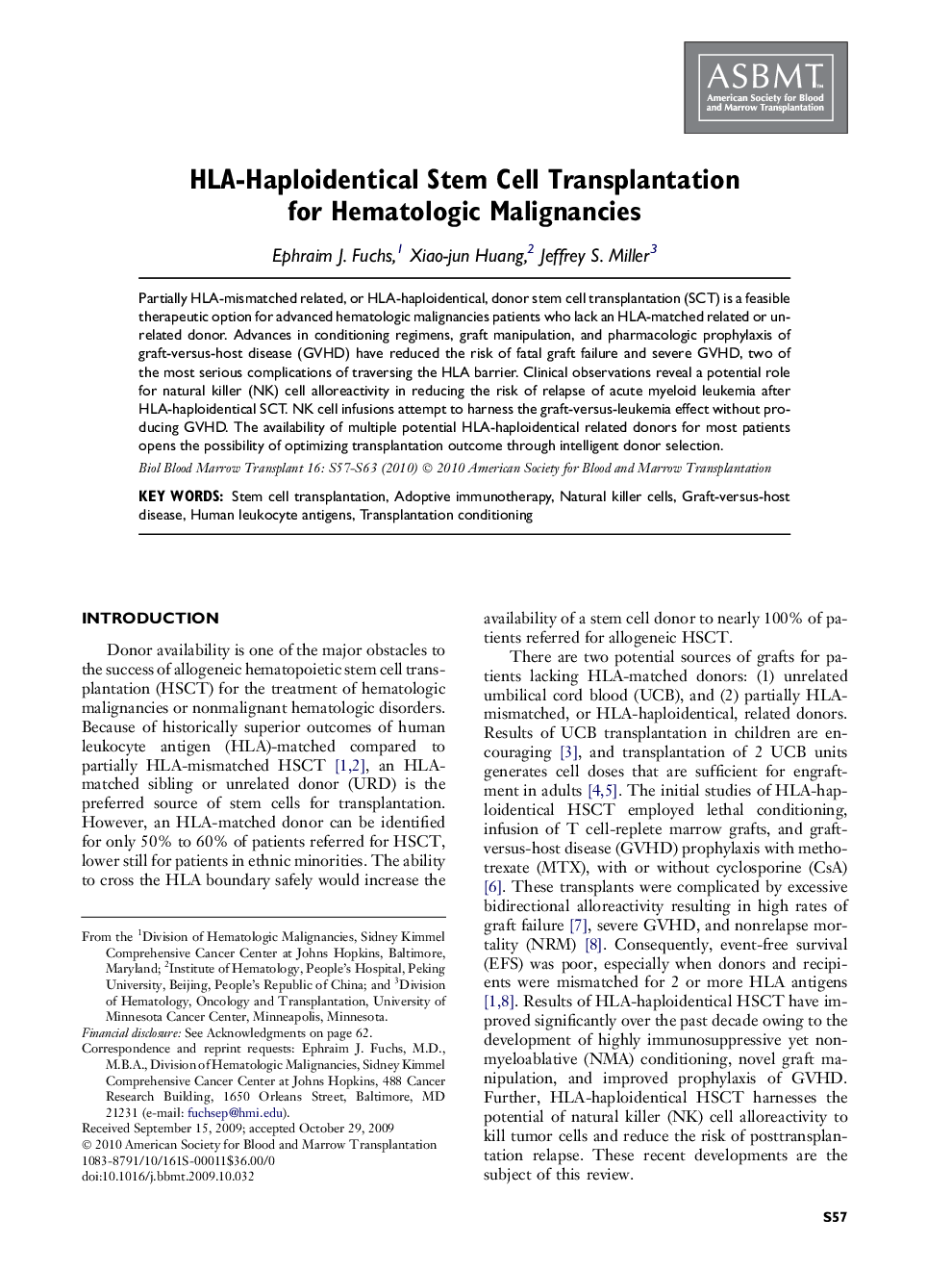| Article ID | Journal | Published Year | Pages | File Type |
|---|---|---|---|---|
| 2104066 | Biology of Blood and Marrow Transplantation | 2010 | 7 Pages |
Partially HLA-mismatched related, or HLA-haploidentical, donor stem cell transplantation (SCT) is a feasible therapeutic option for advanced hematologic malignancies patients who lack an HLA-matched related or unrelated donor. Advances in conditioning regimens, graft manipulation, and pharmacologic prophylaxis of graft-versus-host disease (GVHD) have reduced the risk of fatal graft failure and severe GVHD, two of the most serious complications of traversing the HLA barrier. Clinical observations reveal a potential role for natural killer (NK) cell alloreactivity in reducing the risk of relapse of acute myeloid leukemia after HLA-haploidentical SCT. NK cell infusions attempt to harness the graft-versus-leukemia effect without producing GVHD. The availability of multiple potential HLA-haploidentical related donors for most patients opens the possibility of optimizing transplantation outcome through intelligent donor selection.
